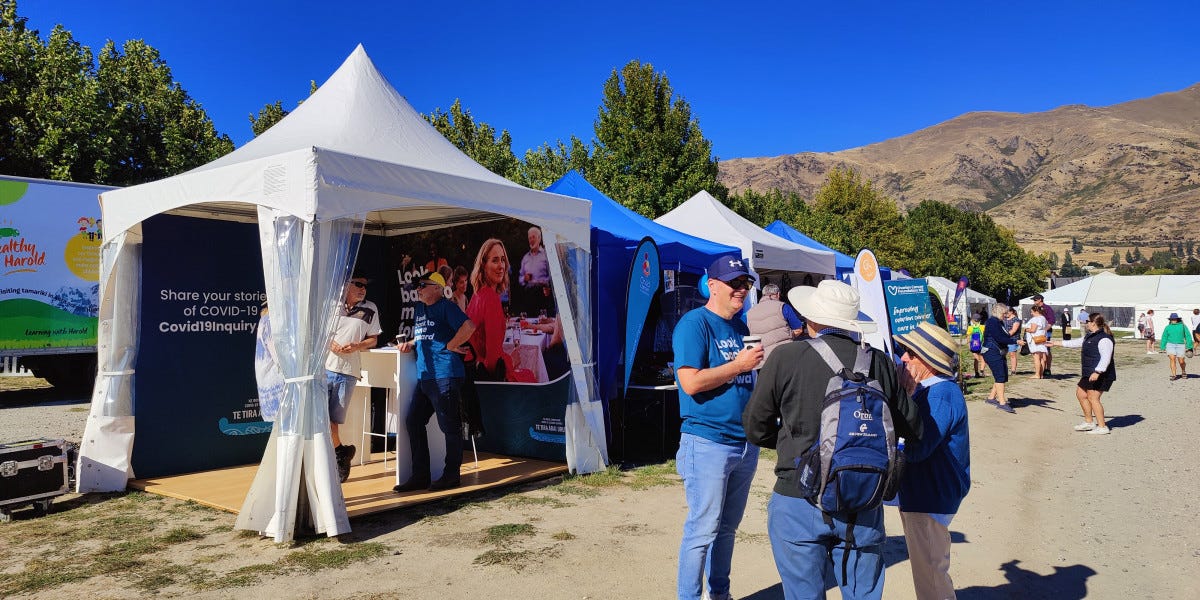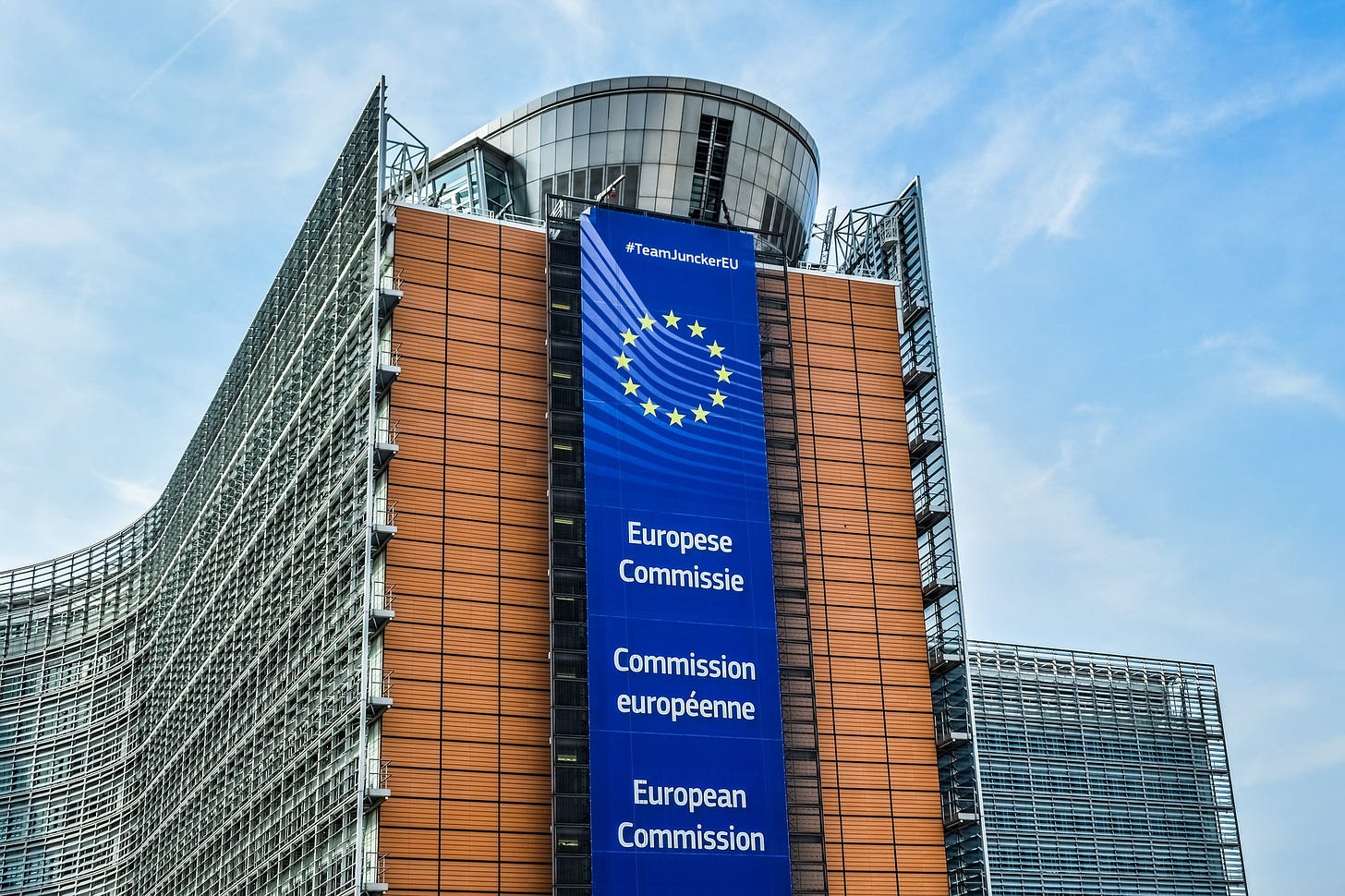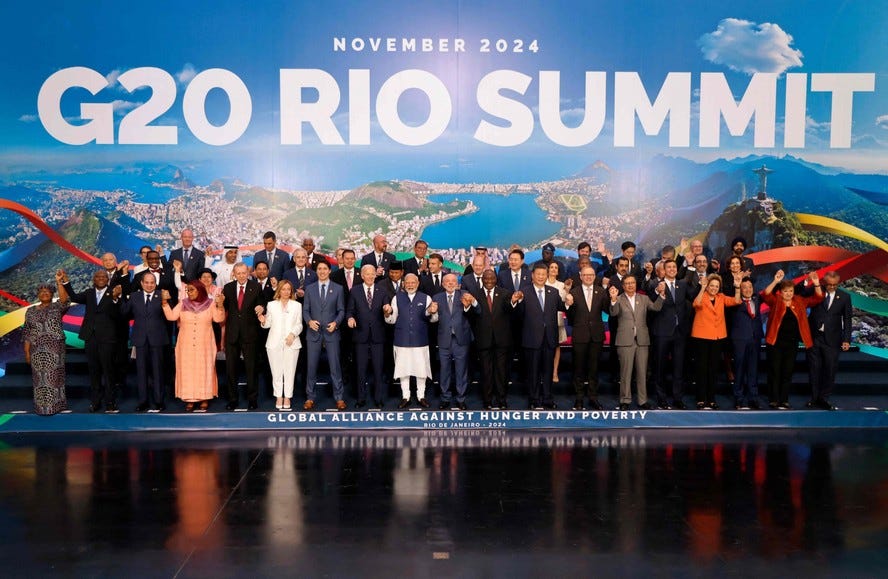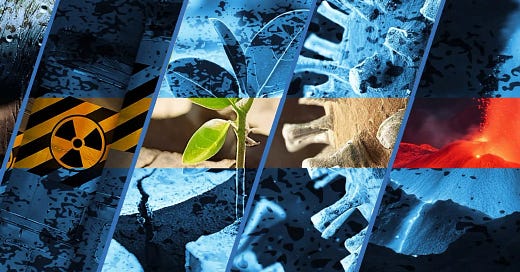

Discover more from Global Shield's Newsletter
Global Shield Briefing (4 December 2024)
Continental preparedness, global food security, and learning from crisis – and a new opportunity
The latest policy, research and news on global catastrophic risk (GCR).
There are various ways to describe the process of looking back after an event to draw out insights. In a military context, you might refer to it as an after-action review. In a policy context, perhaps you can refer to it as a policy review or lessons-learnt exercise. In a corporate context, it might be called a retrospective or an audit. In a medical context, you would call it an autopsy. Unfortunately, we will have no such luxury for a global catastrophe. It will be too late to look back. What we do have now, however, are warning shots. A global pandemic, military conflicts, major natural hazards, sudden supply disruptions. They create both an opportunity to learn and a window for change. The harm caused by these events will have been in vain if it does not shape our future. Mortui vivos docent. But only if we listen.
Preparing a continent
On 30 October, an important report on European Union (EU) preparedness to shocks and crises was presented to Commission President Ursula von der Leyen. The report was developed by Sauli Niinistö, who was President of Finland from 2012 to 2024. It noted that the Commission “do[es] not have comprehensive capacity to bring all necessary EU resources together in a coordinated manner across institutional and operational silos to prepare for – and if needed, act – in response to major cross-sectoral and cross-border shocks and crises.” The report states that “The EU needs to adopt a robust all-hazards, whole-of-government and whole-of-society approach to its civilian and military preparedness and readiness.”
Policy comment: We strongly endorse this report. There is little we can add, so here we pull out some of its key recommendations:
Develop a comprehensive EU Risk Assessment.
Use the upcoming Preparedness Union Strategy to put the EU on track for comprehensive preparedness.
Explore the feasibility of an EU Preparedness Law to set joint standards and long-term targets, aligning EU and national efforts wherever possible.
Articulate a coherent vision for the EU’s role in preparing for and responding to external armed aggression.
Develop a central operational crisis ‘hub’ within the Commission to facilitate cross-sectoral coordination and situational awareness.
Develop tools and frameworks to make EU strategic foresight more actionable and solution oriented.
Further develop a comprehensive exercise culture to make sure coordination and information sharing frameworks and relevant instruments work in practice.
Set up regular cross-sectoral EU training courses on security, defence, and crisis management.
Jointly invest in citizens’ risk education, incorporating different dimensions, such as cybersecurity, disaster risks, and disinformation.
Improve crisis and emergency communication to reach citizens under all conditions.
Prepare in advance to minimise the disruption of protracted crises on social cohesion and the socio-economic fabric of our societies.
Develop a comprehensive EU Stockpiling Strategy to incentivise coordinated public and private reserves of critical inputs, and ensure their availability under all circumstances.
Although not focused on global catastrophic risk, many of the report’s recommendations are relevant to improving all-hazards preparedness, which therefore improves preparedness for more extreme consequences. Governments around the world should study this report and adapt its recommendations to their own contexts.
Also see:
Finland’s guide to citizens on Preparing for Incidents and Crises, Sweden’s “In case of crisis or war” brochure and Norway’s advice on emergency preparedness, all released in the past month.
Building global food supply security
President Silva of Brazil has officially launched the Global Alliance Against Hunger and Poverty as part of its G20 Presidency. There are 148 founding members, including 82 countries, the African Union, the EU and 24 international organizations. The Alliance will hold regular Summits Against Hunger and Poverty and establish a High-Level Champions Council to oversee its work. Its supervising body, The Global Alliance Support Mechanism will be hosted by the UN Food and Agriculture Organization (FAO).
A new pre-print study has assessed that “the global food trade system is resilient to minor disruptions but vulnerable to major ones”. According to the study, scenarios that abruptly block sunlight – such as asteroids, volcanoes or nuclear war, which pollute the upper atmosphere with light-reflecting contaminants – could severely disrupt trade, causing most countries to lose between 50 and 100 per cent of their food imports. A major loss of critical infrastructure that is important for the food supply chain – such as an extreme pandemic that stopped work or a global attack on communications or electricity – could result in most countries losing up to half of their food imports.
Policy comment: Major agricultural producers must develop policy mechanisms to manage global and national catastrophic threats to their food supply. As the study suggests, it is the massive reduction in global food trade that would lead to severe hunger around the world in a catastrophic scenario, which could have far-ranging geopolitical effects beyond the immense human suffering. A range of policy options are available, including researching, developing and piloting alternative and resilient foods, planning for massive build-up and roll-out of food production in a catastrophic scenario, and collaborating internationally with other nations on shared resources and plans. The US’s National Security Memorandum on food system resilience and a recent bipartisan parliamentary inquiry into Australia’s food security demonstrate greater focus among major agricultural producers. But implementation remains a critical issue. And these countries need to champion global food system security within the Global Alliance Against Hunger and Poverty.
Also see:
A recent study that summarizes the potential interventions for global catastrophic food shocks, including resilient food research and development, critical infrastructure resilience for GCR, and national and international policy.
Reviewing and learning from crisis

New Zealand has completed Phase One of its Royal Commission into Covid-19 pandemic response. It recommended that “a central agency function should be established to coordinate all-of-government preparation and response planning for pandemics and other national risks, supported by strengthened scenario planning, modelling capability, and external expertise.” This function would include managing the national risk assessment. The Commission also recommended an oversight mechanism, such as a Cabinet Committee, to proactively review national preparedness for all hazards. Phase Two has begun immediately with new commissioners and a new Terms of Reference focusing on the vaccine rollout and the effect the Covid-19 response had on other sectors of society, like education and the economy.
The Australian Government has released the report from its Independent Review into Australia’s response to the Covid-19 pandemic. It provided nine recommendations for action over the next 18 months, and a further seven medium-term actions prior to the next national health emergency. It did not recommend major changes to Australia’s planning, preparedness and response for national emergencies or crises. The only all-hazard recommendation – “Develop a whole-of-government plan to improve domestic and international supply chain resilience” – did not come with any explanation or detail.
Policy comment: Every crisis creates an opportunity to review the legislation, policy, processes and institutions that would underpin catastrophic risk reduction. However, these reviews must be timely, holistic and independent to best inform policymakers. The two recent reviews, along with those of Singapore and the UK, demonstrate the various levels of effectiveness. The UK and New Zealand’s processes are independent reviews led within the legislative branch, and the first of multiple components. The Australian review, on the other hand, was led out of the Prime Minister’s department with a scope that did not cover the whole-of-nation pandemic response, while being insufficiently focused on prevention or preparedness. As a result, the recommendations were unambitious and lacked guidance for much-needed systemic and all-hazards policy. Any review must consider risk governance, assessment, prevention and preparedness to inform management of national risk beyond the specific type of crisis. It is also important to evaluate cross-cutting impacts of the crisis with other policy areas, such as foreign policy, national security, critical infrastructure, the economy, healthcare, technology and society.
Hiring for Global Shield
A new exciting opportunity has opened up at Global Shield! We are hiring for a director of our US office. Reporting to the Executive Director, this person will be responsible for advancing our mission with US policy, engaging with governmental agencies, fostering relationships with strategic partners, and building Global Shield’s credibility and reach.
The job is to convince US policymakers to take definitive action to prevent and prepare for the many ways a global catastrophe might upend our collective future. We are looking for an experienced advocate and leader who is deeply knowledgeable about policy processes and passionate about reducing global catastrophic risk. We want individuals who resonate with our organizational values and possess the audacity to tackle global challenges.
If you are such a person, or know such a person, we look forward to seeing an application. See more information and the application link here.
This briefing is a product of Global Shield, the world’s first and only advocacy organization dedicated to reducing global catastrophic risk of all hazards. With each briefing, we aim to build the most knowledgeable audience in the world when it comes to reducing global catastrophic risk. We want to show that action is not only needed, it’s possible. Help us build this community of motivated individuals, researchers, advocates and policymakers by sharing this briefing with your networks.
Subscribe to Global Shield's Newsletter
The latest policy, news and research on global catastrophic risk












